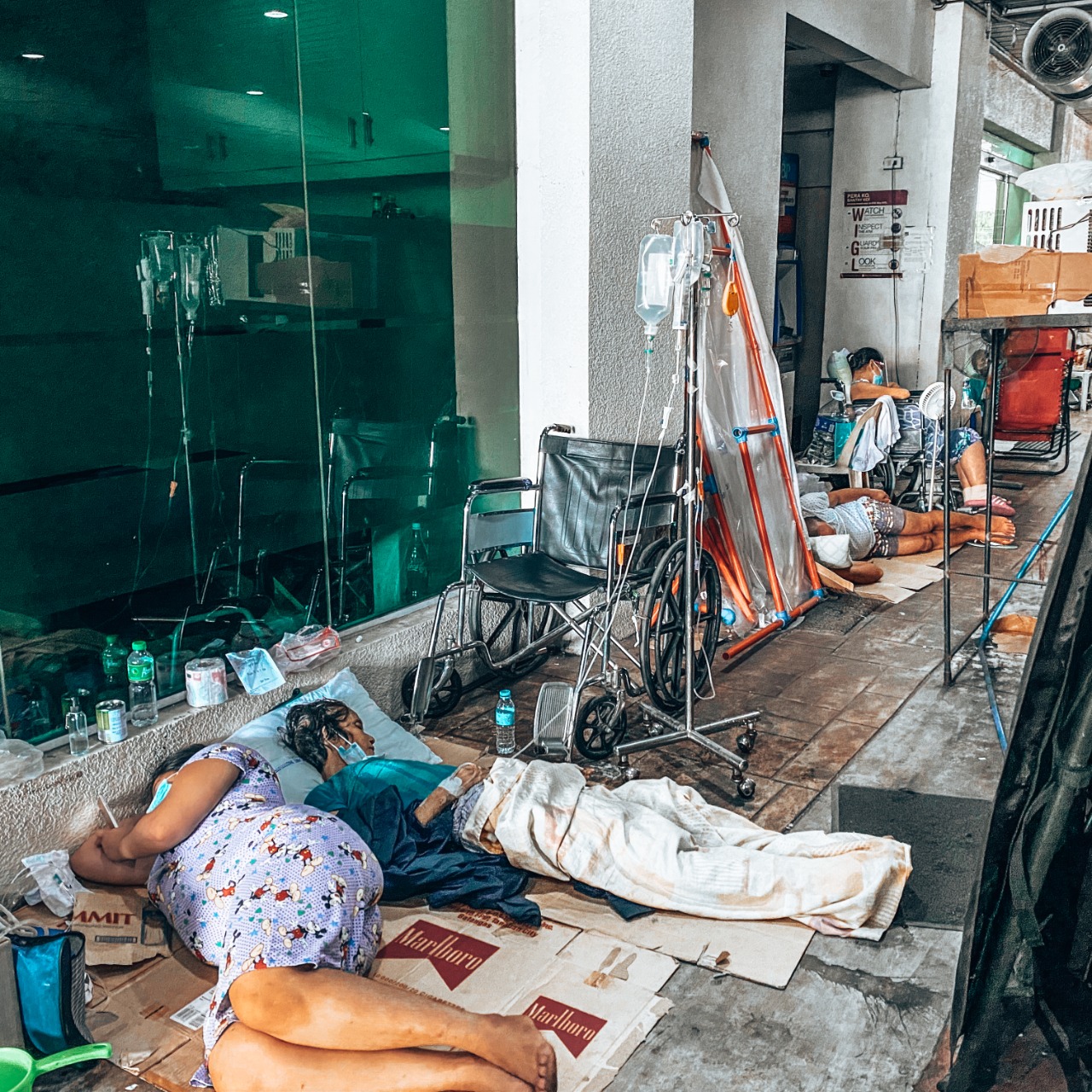
National Kidney and Transplant Institute patients sleep out in the open at the facility or receive treatment there in wheelchairs. CONTRIBUTED PHOTO
MANILA, Philippines — As hospitals battled the explosion of COVID-19 cases and shortage of beds, many patients may have been forced to stay outside or lay on the ground while receiving treatment.
Photos sent to INQUIRER.net by a netizen showed harrowing conditions at the National Kidney and Transplant Institute (NKTI) in Quezon City, where patients had been sleeping in the open at the facility or were being treated there in wheelchairs.
One of the photos showed a makeshift tent with ER patients sitting in wheelchairs rather than hospital beds as they should.
INQUIRER.net contacted NKTI, and they admitted they were working way over capacity when it came to COVID-19 units and the emergency room. However, they pointed out that the people on the ground outside are relatives of patients, as each one gets a wheelchair.
“We saw those pics too… investigated by hospital authorities. Those are relatives who keep on insisting [on] putting up those cartons to lie flat. [All] patients are provided wheelchairs and stretchers,” NKTI Department Manager III Dr. Michael Jaro told INQUIRER.net in a text message.
“Yes, all COVID units are full,” Jaro answered when asked if NKTI is already in a state of overcapacity.
However, in another photo, a woman who appears to be a patient is seen lying outside the emergency room. There is an empty wheelchair beside her — possibly one provided by NKTI — with an intravenous drip attached to her.
Despite a steady decrease in COVID-19 cases, Metro Manila and neighboring provinces of Bulacan, Cavite, Laguna, and Rizal still face the effects of the COVID-19 surge, which forced the government to place these areas under stricter lockdowns.
As of Thursday, the country’s active COVID-19 case count was at 107,988, after 8,767 new infections were recorded. While this is way lower than the 203,710 active cases last Saturday, the current case count is still above the usual 20,000 to 30,000 before the surge occurred.
READ: PH’s active COVID-19 cases breach 200,000th-mark
READ: Active COVID-19 cases down to 107,988 as DOH records 17,138 new recoveries